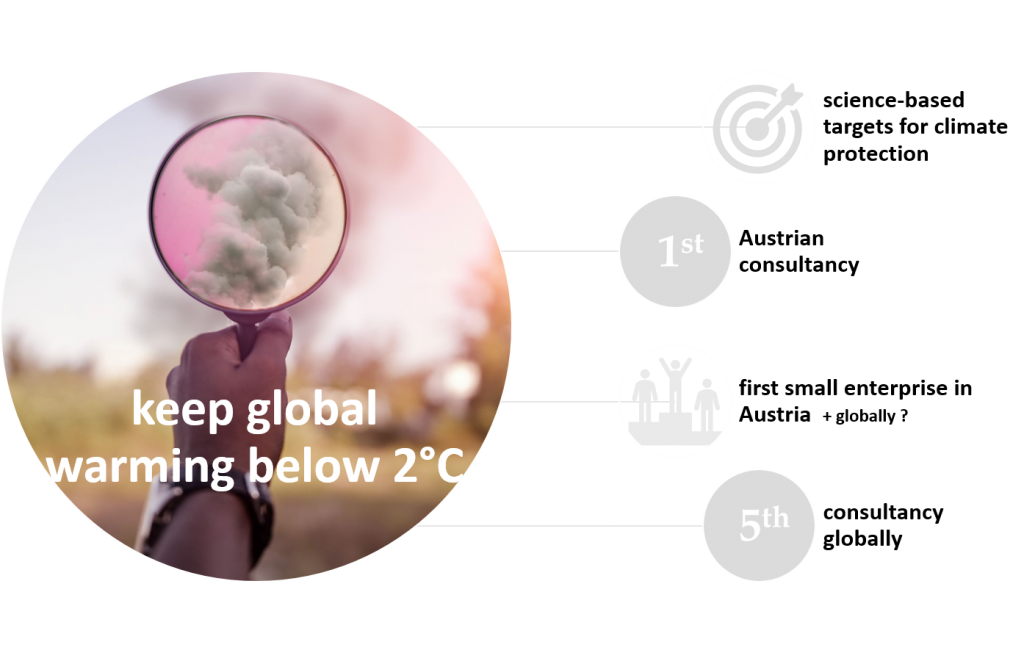Daxner & Merl is the first Austrian consultancy with science-based targets for climate protection. Being well aware of the role companies have to play for full decarbonisation, we are ready to push ambitious climate action and manage our carbon footprint.
As part of the science-based target initiative, we officially committed to and set ambitious climate targets.
What is a science-based target?
Science-based targets specify how much and how quickly we need to reduce our greenhouse gas emissions in order to comply with the goals of the Paris agreement.
With the Paris agreement, the world’s leaders committed to limit global warming to well below 2 degrees celsius. This committment represents a global effort to prevent the worst consequences of climate change for a liveable future.
Targets adopted by companies to reduce greenhouse gas (GHG) emissions are considered “science-based” if they are in line with the level of decarbonization required to keep global temperature increase below 2 degrees Celsius compared to pre- industrial temperatures, as described in the Fifth Assessment Report of the Intergovernmental Panel on Climate Change (IPCC AR5).
Science Based Targets Initiative
We manage our carbon footprint
Being one of Austria’s first companies next to Österreichische Post AG , Verbund AG, Constantia Flexibles International GmbH, Austria Glas Recycling GmbH with approved climate targets we comprehensively calculated our carbon footprint considering our entire value chain:
data collection
We calculated our carbon footprint based on the latest activity data we have available. Therefore, we analysed all relevant quantities arriving at a comprehensive input-outout-analysis of our operations in 2018.
life cycle data
Our carbon footprint results are based on carefully chosen cycle inventory data from renowned databases including GaBi and ecoinvent. All databases used, are updated on a regular basis and thus refer to the most actual basis for life cycle assessment available.
methodology
All our calculations are following the requirements of the GHG-protocol, the UNEP SETAC O-LCA guidance as well as ISO 14040/14044 where applicable.
life cycle impact assessment
All characterisation factors applied refer to latest climate science published by the International Panel on Climate Change (AR5).
Our climate targets
We developed our targets based on state of the art climate science:
These targets were officially validated by the science based targets initiative.
The Science Based Targets initiative (SBTi) is a collaboration between CDP, the United Nations Global Compact, World Resources Institute (WRI) and the World Wide Fund for Nature (WWF). The SBTi defines and promotes best practice in science-based target setting and independently assesses and approves companies’ targets.
Science-based targets provide companies with a clearly defined pathway to future-proof growth by specifying how much and how quickly they need to reduce their greenhouse gas emissions.

